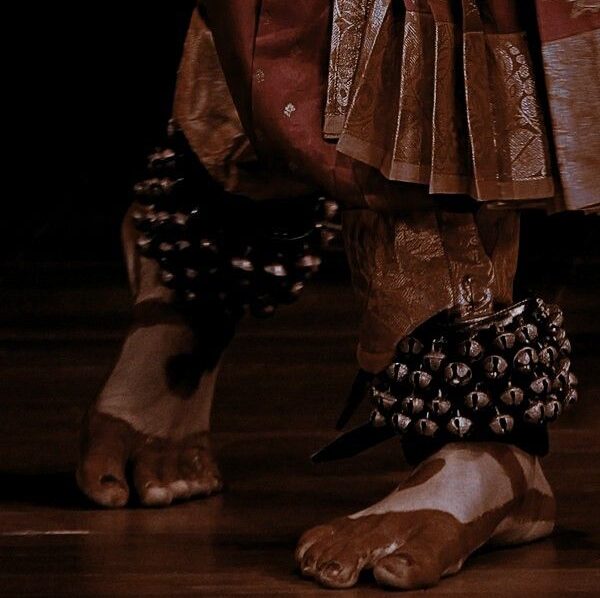
Choosing a Master’s in Ethnomusicology is as much about scholarly mentorship and fieldwork infrastructure as it is about global reputation. Using the latest subject league tables for 2024–2025—principally QS World University Rankings by Subject (Performing Arts / Arts & Humanities) and, where relevant, Times Higher Education (Arts & Humanities)—this guide spotlights five universities that combine elite standing with genuinely robust ethnomusicology master’s pathways. We’ve also highlighted what each does best, the kind of training you’ll get, and the career arcs graduates typically pursue.
How we picked
-
We prioritized institutions that (1) appear near the top of global subject rankings in 2024/2025, and (2) offer a clearly defined master’s route in ethnomusicology (or a music master’s with an ethnomusicology pathway).
-
QS’s Performing Arts tables tend to foreground universities where music is strong; we also consulted Arts & Humanities subject rankings when a school’s ethnomusicology sits within a broader humanities faculty. Top Universities+1
1) University of Oxford (UK)
Why it’s top-tier: Oxford sits at or near the summit of global Arts & Humanities in 2025, reflecting depth across musicology, anthropology, and area studies that ethnomusicologists regularly draw upon. The Faculty of Music’s MSt in Music allows students to focus their master’s research in musicology/ethnomusicology with close supervision and strong methods training. Oxford HumanitiesFolklore and Ethnomusicology Dept.
What you’ll study: Expect core research methods, theory, and a supervised dissertation. Oxford’s network across the Humanities Division (e.g., anthropology, languages, regional studies) enables rich, interdisciplinary fieldwork design—ideal for projects on migration, religion, or sound and society. Folklore and Ethnomusicology Dept.
Rank snapshot (subject): QS 2025 places Oxford 2nd globally for Arts & Humanities—useful context for the master’s environment you’ll join. Oxford Humanities
Graduate trajectories: Museum and heritage roles, cultural policy, PhD preparation, and NGO/cultural-sector research are common.
2) University of Cambridge (UK)
Why it’s top-tier: Cambridge is firmly embedded in the global top cohort for Performing Arts (QS 2025 lists Cambridge at #16), and the Faculty of Music’s MPhil in Music supports specialist routes—commonly supervised in ethnomusicology, cultural musicology, and related areas. Top Universities+1
What you’ll study: A one-year advanced master’s with taught components in research skills plus a substantial thesis. Cambridge’s long tradition in field methods and cultural theory complements archival and analytical work, letting students blend ethnography with historical/critical approaches. Top Universities
Rank snapshot (subject): QS Performing Arts 2025: #16. (Cambridge is also consistently top-tier across Arts & Humanities year to year.) Top Universities+1
Graduate trajectories: Doctoral study, arts journalism, festival and arts administration, and cultural diplomacy.
3) UCLA — University of California, Los Angeles (USA)
Why it’s top-tier: UCLA’s Herb Alpert School of Music houses one of the world’s most active ethnomusicology communities. The department offers a BA and an MA/PhD route in Ethnomusicology, meaning you’ll study alongside a large research cohort, diverse ensembles, and a faculty deeply engaged in fieldwork across Africa, Asia, the Middle East, the Americas, and diasporas. The UCLA Herb Alpert School of Music+1
What you’ll study: The master’s phase emphasizes theory, area studies, field and archival methods, and language preparation. UCLA’s graduate handbook outlines foreign-language requirements and progression milestones—clear evidence of structured, research-intensive training. Performance opportunities (e.g., traditional and global ensembles) are built into the program’s identity. The UCLA Herb Alpert School of Music+1
Rank snapshot (subject): UCLA regularly features in QS subject lists for the performing arts; the school’s stature and visibility in the discipline make it a perennial destination for prospective ethnomusicologists. (Use QS’s subject filters to view current placements for Performing Arts.) Top Universities
Graduate trajectories: University teaching and research, media and documentary, archives, community arts leadership, and the music industries.
4) New York University (USA)
Why it’s top-tier: NYU combines a global top-10 QS Performing Arts presence with a dedicated ethnomusicology graduate track inside Arts & Science. In 2025, NYU ranks #7 worldwide in Performing Arts, reflecting strong employer and academic reputation—relevant signals for students eyeing creative and research sectors. Top Universities
What you’ll study: The Department of Music (GSAS) offers Ethnomusicology alongside Historical Musicology and Composition/Theory. Expect rigorous seminars in sound studies, critical theory, and area/genre specialisms, taught by faculty whose work spans African American music, sound and violence, and global popular cultures. NYU Arts and Science+3NYU Arts and Science+3NYU Arts and Science+3
Rank snapshot (subject): QS Performing Arts 2025: #7 globally. Top Universities
Graduate trajectories: Cultural sector research, curation, media/tech (audio, UX sound), PhD pathways, and international arts administration.
5) SOAS University of London (UK)
Why it’s top-tier: SOAS is widely recognized as Europe’s largest centre for ethnomusicology, and its MA Music explicitly foregrounds ethnomusicology practice, performance, and ethnographic methods—rare clarity at master’s level. The department’s specialization in Asia, Africa, and Middle Eastern musical worlds makes it a magnet for students focused on de-westernizing music studies. SOAS+1
What you’ll study: Core ethnomusicology theory/methods, options spanning regional traditions and popular music, and a dissertation. The program emphasizes fieldwork skills and, often, language training—ideal for immersive research. SOAS
Rank snapshot (subject): While SOAS is not a conservatoire that dominates QS Performing Arts tables, it holds a strong international profile in Arts & Humanities; Times Higher Education lists SOAS in the global subject rankings for 2025 (Arts & Humanities). For ethnomusicology-specific training—especially beyond Europe/North America—SOAS remains a top pick. Times Higher Education (THE)
Graduate trajectories: NGOs and cultural development, archives and heritage, festivals, media, and PhD research centered on Asia/Africa/Middle East and their diasporas.
Quick comparisons: what stands out where?
-
Best for interdisciplinary depth: Oxford and Cambridge. If your project sits at the intersection of music, anthropology, religion, or migration studies—and you want access to world-class libraries and language resources—these ecosystems are hard to beat. Their 2025 subject placements confirm a consistently elite humanities environment. Oxford HumanitiesTop Universities
-
Best for large, fieldwork-rich cohort and performance ensembles: UCLA. It blends ensemble performance with research training, plus formal language requirements that strengthen ethnographic work. The UCLA Herb Alpert School of Music+1
-
Best for metropolitan networks and contemporary sound studies: NYU. The #7 QS Performing Arts ranking (2025) pairs with New York’s cultural industries for internships, archives, and scene access. Top Universities
-
Best for non-Western specialism and language integration: SOAS. The MA Music is purpose-built around ethnomusicology, with unique depth in Asia/Africa/MENA traditions. SOAS+1
A note on rankings and fit
League tables are a great starting point, not the finish line. For ethnomusicology, supervisor match, area expertise, language offerings, and fieldwork logistics matter as much as rank—sometimes more. Use rankings to shortlist, then drill down into faculty pages, current projects, language centers, and ensemble offerings before you decide. Top Universities
Sources
-
QS World University Rankings by Subject 2025 — Performing Arts & Arts and Humanities overviews. Top Universities+2Top Universities+2
-
University of Oxford — Arts & Humanities ranking and MSt in Music (Graduate). Oxford HumanitiesFolklore and Ethnomusicology Dept.
-
University of Cambridge — MPhil in Music (advanced study). QS Performing Arts 2025 position. Top Universities+1
-
UCLA Herb Alpert School of Music — Ethnomusicology degrees, performance opportunities, graduate handbook (MA/PhD structure & language requirement). The UCLA Herb Alpert School of Music+2The UCLA Herb Alpert School of Music+2
-
New York University (GSAS, Arts & Science) — Ethnomusicology graduate track; QS Performing Arts 2025 ranking. NYU Arts and Science+1Top Universities
-
SOAS University of London — MA Music (ethnomusicology focus) and Department overview; subject ranking context (THE 2025 Arts & Humanities). SOAS+1Times Higher Education (THE)
Tip: If your shortlist is down to two or three programs, email potential supervisors with a 150-word project pitch and ask about recent MA theses in your area. Their responses often tell you more than anyone in the world.




